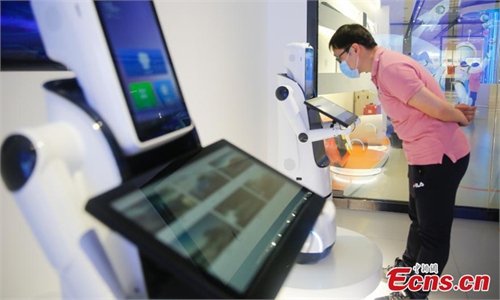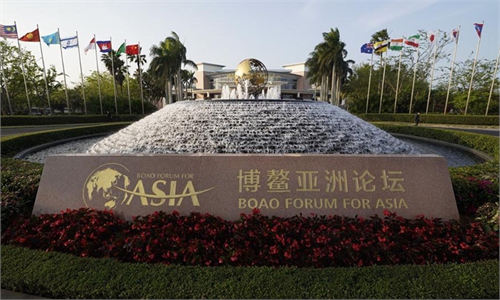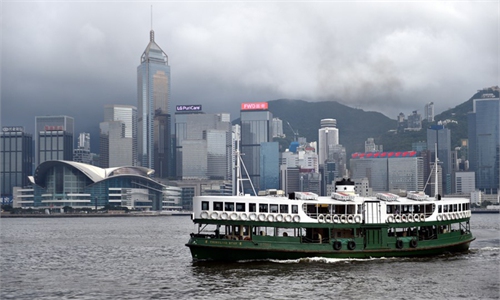Guangdong-Macao zone to speed integration
Plan comes at critical stage as China faces challenges in complex environment
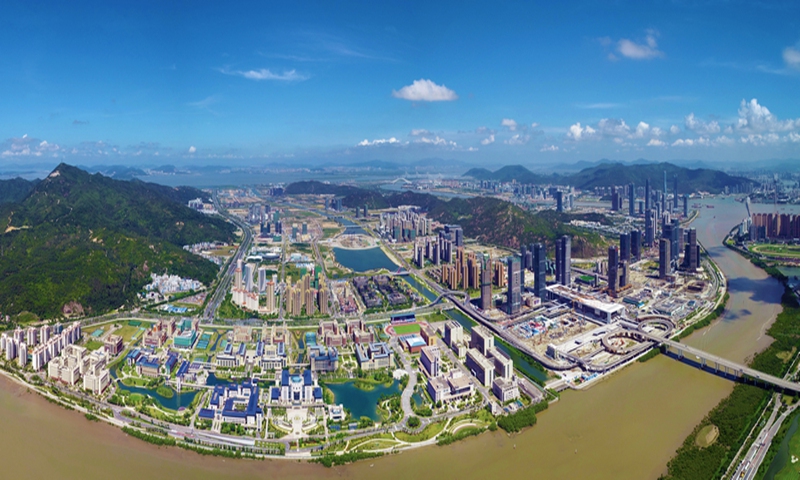
The University of Macao on the island of Hengqin Photo: Courtesy of the University of Macao
China aims to push forward cooperation between Macao and Guangdong Province by establishing an in-depth cooperation zone in Hengqin, an island located in Guangdong's Zhuhai not far from the Macao Special Administrative Region, in what some experts called the country's highest level of opening-up in order to accelerate Macao's integration into the country's overall development.
According to a construction plan jointly released by the Central Committee of the Communist Party of China and the State Council, the 106-square-kilometer area of cooperation zone is being set up as a "major deployment" by the government to enrich the "one country, two systems" policy in practice, as well as provide important momentum for Macao's long-term development, the Xinhua News Agency reported.
A spokesperson of the Hong Kong and Macao Affairs Office of the State Council noted that the Hengqin plan showed the central government's determination to deepen reforms and enlarge opening-up, as well as support for Macao's long-term development and livelihood improvement.
The zone is being set up as China is pushing to further open up its economy to overseas investors, and mounting efforts to enhance the economic development of the Pearl River Delta with regional cooperation initiatives, particularly the Guangdong-Hong Kong-Macao Greater Bay Area initiative.
"China is rolling out the Hengqin plan at this time, when it is at a critical stage in opening-up and faces challenges like a complicated global environment, to speed up Macao's integration into the Greater Bay Area and into China's overall development plan," Lin Jiang, a professor of economics at Lingnan University College of Sun Yat-sen University, told the Global Times.
In particular, although the Hengqin region has already been portrayed by the media as one of the Chinese mainland's most open areas, setting up the cooperation zone reflects the government's aim to push the Hengqin region's opening-up level to a higher standard by offering favorable policies ranging from tax cuts to cross-border financial management, analysts said.
"The plan shows that officials have made wide-ranging and innovative arrangements for Hengqin, whether in terms of customs management, cross-border finance or personnel and data flows. The opening-up arrangement for the zone is superbly strong," Mao Yanhua, a professor of the Institute of Guangdong, Hong Kong and Macao Development Studies under Sun Yat-sen University, told the Global Times on Monday.
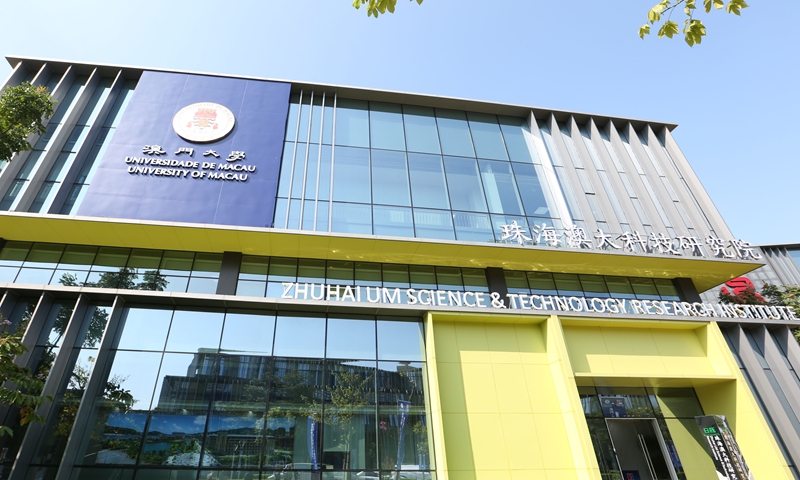
Zhuhai UM Science & Technology Research Institute Photo: Courtesy of the University of Macao
The plan specified multiple measures that Hengqin would take to establish an open economic system. For example, in market access, the cooperation zone will establish a highly convenient market access mechanism, and companies only need to submit certain information for records and promise they will abide by regulations, before they will be allowed to carry out business activities.
In terms of trade, the government will simplify the application procedures for commodities traded between Macao and the cooperation zone, while officials might also adjust the current tax list to exempt all commodities from taxes, except products that are excluded from tax exemption by laws.
For the financial industry, the government will also adopt an open attitude toward potential investors from the mainland and overseas, and encourage investors to set up multiple-currency investment funds. It is also mulling establishing a new port between the cooperation zone and the Hengqin campus under the University of Macao, so that students and faculty of the university can travel freely in and out of the cooperation zone. The University of Macao told the Global Times that it would participate in the cooperation zone's construction.
According to Mao, Macao can't complete the construction of the economic zone by itself, but it needs to cooperate with the mainland. "The officials' move to attract global investors with opening-up policies provides opportunities for investors both at home and abroad," he said.
Apart from the role of being an experimental zone for opening-up, the cooperation zone also provides a pilot region to explore solutions to problems during construction of the Greater Bay Area, experts said.
According to Mao, currently Hong Kong and Macao have cooperation with all cities in Guangdong, such as jointly building industrial parks. But there are some systemic obstacles to such cooperation, such as bid document flows, and Hengqin can set an example in solving those problems with the help of new policies.
"One problem of Hengqin is lack of support for Macao because of an insufficient integration level. The government wants to change the situation by molding the region into one of the most important cooperation platforms in the Greater Bay Area," Mao noted.
Lin noted that although Zhuhai-Macao cooperation has gone on for years, there's still no perfect answer as to how Macao could expand its economic structure via cooperation with Guangdong cities, and the rollout of the Hengqin proposal shows that the problem of Macao's economic singularity has grown to be like "an arrow on the bowstring."
The plan also pointed out that the cooperation zone will focus on technology research and development of high-end manufacturing, with input on specific industries such as integrated circuits, new materials, new energy, big data, artificial intelligence and bioscience.
Dong Dengxin, director of the Finance and Securities Institute of Wuhan University, also told the Global Times that Hengqin's geography gives it more advantages for closed-loop development, as it is more suitable to develop scientific projects instead of labor-intensive industries.

